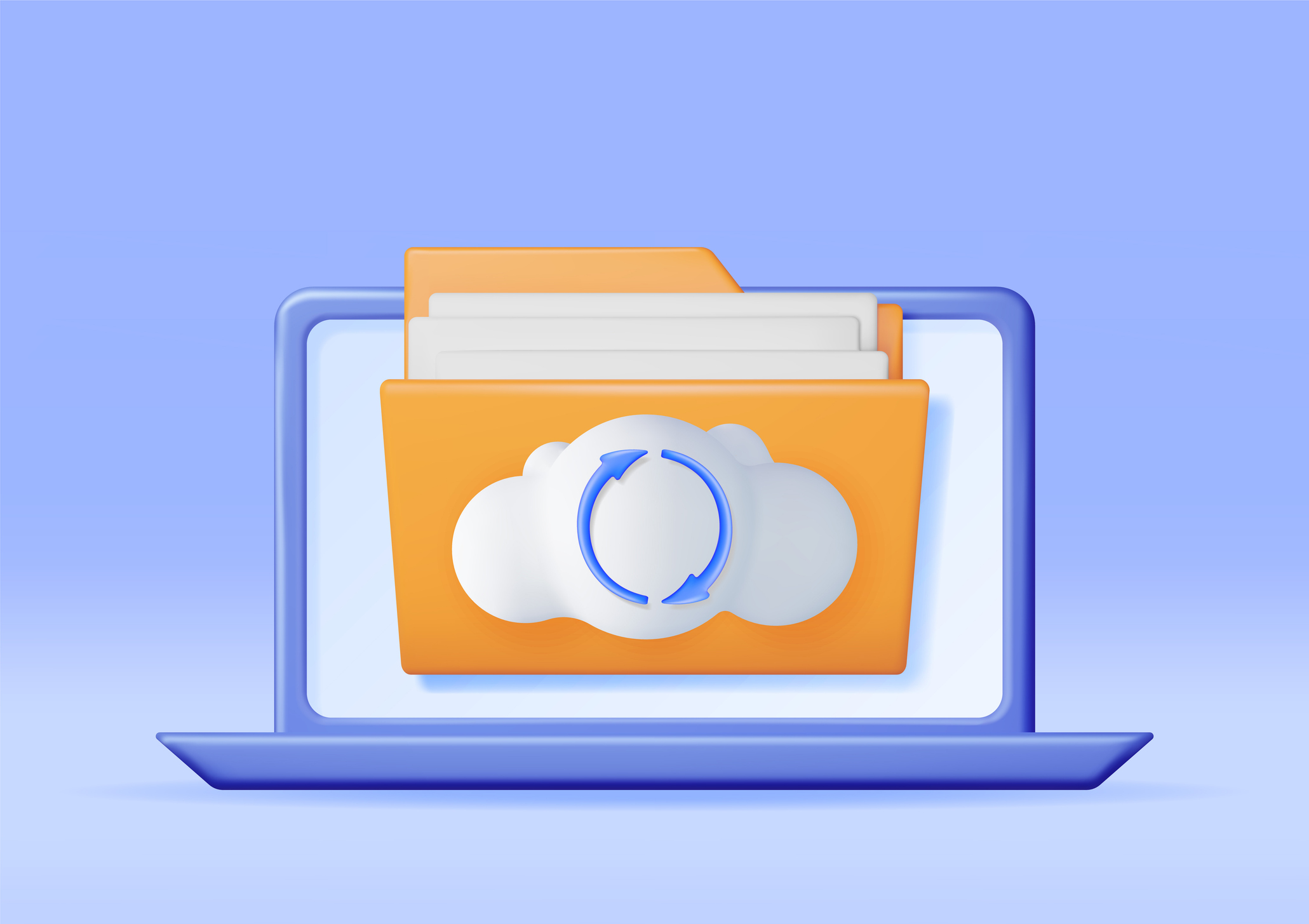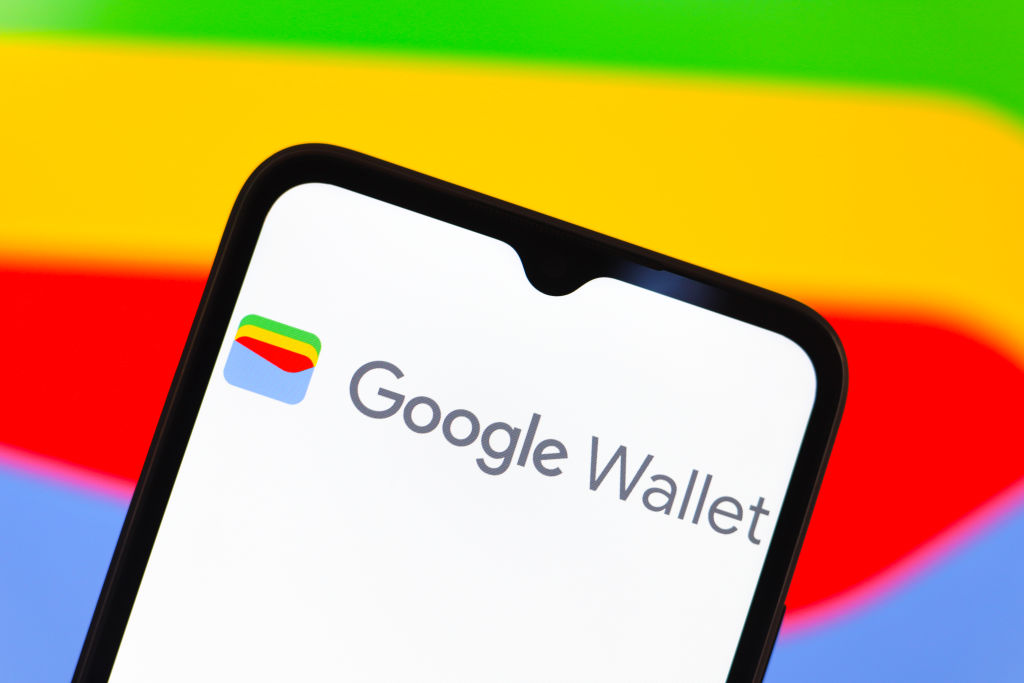Seven Financial Tools You Need to Manage Your Small Business
From a business bank account to tax software, these are the essential tools you need to manage your business finances.

Profit and prosper with the best of Kiplinger's advice on investing, taxes, retirement, personal finance and much more. Delivered daily. Enter your email in the box and click Sign Me Up.
You are now subscribed
Your newsletter sign-up was successful
Want to add more newsletters?

Delivered daily
Kiplinger Today
Profit and prosper with the best of Kiplinger's advice on investing, taxes, retirement, personal finance and much more delivered daily. Smart money moves start here.

Sent five days a week
Kiplinger A Step Ahead
Get practical help to make better financial decisions in your everyday life, from spending to savings on top deals.

Delivered daily
Kiplinger Closing Bell
Get today's biggest financial and investing headlines delivered to your inbox every day the U.S. stock market is open.

Sent twice a week
Kiplinger Adviser Intel
Financial pros across the country share best practices and fresh tactics to preserve and grow your wealth.

Delivered weekly
Kiplinger Tax Tips
Trim your federal and state tax bills with practical tax-planning and tax-cutting strategies.

Sent twice a week
Kiplinger Retirement Tips
Your twice-a-week guide to planning and enjoying a financially secure and richly rewarding retirement

Sent bimonthly.
Kiplinger Adviser Angle
Insights for advisers, wealth managers and other financial professionals.

Sent twice a week
Kiplinger Investing Weekly
Your twice-a-week roundup of promising stocks, funds, companies and industries you should consider, ones you should avoid, and why.

Sent weekly for six weeks
Kiplinger Invest for Retirement
Your step-by-step six-part series on how to invest for retirement, from devising a successful strategy to exactly which investments to choose.
Whether you’ve decided to start a business in retirement or you’re making the leap to trade your day job to fulfill your passion, handling your small business’s finances can get complicated and messy fast if you don’t have the right tools. But which tools do you really need? How do you decide which ones to get?
To help you build a tech stack that works for your needs, look into adding these seven tech tools to manage your finances easily and accurately.
1. Business bank account
Not only is a business bank account required for most small businesses, it can often make your life as a business owner easier. With a tech-forward option like the business checking account provided through the fintech company Mercury, for example, you’ll get extra features like third-party integrations with your accounting software, payment processing service and other important business tools. It can even generate invoices, match incoming payments to those invoices and do dozens of other handy functions that streamline the financial side of your business.
From just $107.88 $24.99 for Kiplinger Personal Finance
Become a smarter, better informed investor. Subscribe from just $107.88 $24.99, plus get up to 4 Special Issues

Sign up for Kiplinger’s Free Newsletters
Profit and prosper with the best of expert advice on investing, taxes, retirement, personal finance and more - straight to your e-mail.
Profit and prosper with the best of expert advice - straight to your e-mail.
Whichever business account you choose, make sure to check the fees, minimum balance and other requirements. Many banks charge fees, especially for accounts with more advanced tools and features. Accounts provided through Mercury come with no annual or hidden fees and no minimum balance requirements.
Compare Mercury bank accounts and find the right price and features for your small business.
2. Accounting software
Almost as important as a business account, accounting software is integral for ensuring you’re accurately keeping track of your revenue and costs. This is also where you’ll be able to create and keep track of invoices, manage your bills and generate reports to analyze the financial health of your business.
With that said, there can be a lot of variation between programs, and between the tiered plans offered by each software. So it’s important to shop around and compare the features that come at each price point across a few different programs before you commit to any particular accounting software.
It also helps to have software that integrates with your business account. While not everyone offers this, Mercury business accounts integrate with QuickBooks and Xero, two of the leading accounting software options. Subscribers to Mercury's paid plan, Mercury Pro, also get access to NetSuite integrations. This can automate a lot of the data syncing and reporting needed to keep your accounting up to date and accurate.
3. Payment processor

Whether you sell a physical product or offer a service, you need a way to process various types of payments like credit cards and mobile payments. There are plenty of different payment processing services out there, with Stripe and Square being two of the more well known brands.
But the fee structure and account requirements vary significantly, so it’s important to take a close look at each one and estimate how much you’ll pay each month based on the types of transactions you process the most.
With a Mercury account, you’d be able to link Stripe to your checking account to take advantage of Mercury’s invoice generation features and set up transfers from your Stripe to your Mercury account. If you’re not sure where to start with choosing a payment processor, this is a convenient place to start.
4. Tax software
Getting your taxes right each year is as stressful as it is important. So working with a great tax prep software that caters to small businesses is key. Whether you want to hire a pro or file them yourselves, opt for tax prep software that at least offers the option to ask a live tax expert questions as you go.
Ideally, it should also integrate with your preferred accounting software, too. This just makes it easier to import your documents and lower the risk of errors as you fill out your tax return.
5. Payroll software
There’s more to paying your employees than cutting checks. With payroll software, you can easily calculate paychecks, withhold taxes and other deductions and keep up with evolving employment laws and compliance.
It also helps track time-off accruals and usage and provide an employee portal where your employees can easily check pay history, get pay stubs or change direct deposit information. Come tax time, payroll software can even help with generating W-2s to employees.
Overall, it’s an important way to cut down on the manual calculations and paperwork involved in paying employees. So if your business is made up of more than just you, this is a must.
If your team is still relatively small, though, look for software that’s scalable. That is, you want payroll software that offers a lower cost basic version so you’re not paying for robust tools that you don’t need yet or the ability to process payroll for hundreds of employees when you currently only have a couple of people on your staff.
6. Financial planning software
Financial planning software allows you to both track your past performance and plan for the future. It will include features like budgeting, forecasting and scenario planning that help you make data-driven decisions and set financial goals or projections for your business.
To start, you might want to keep costs down by opting for accounting software that includes at least a few basic financial planning features. But, as you grow, explore more advanced tools that offer things like automated identification of cost saving or growth opportunities.
7. Secure financial document storage

As a small business owner, you’ve got a growing pile of important documents to keep track of: Receipts, payroll records, permits and licenses, insurance and the list goes on. While you might not need to access all of these documents in your day-to-day, it’s important to store financial documents the right way so that you can easily find them when you do need them.
Both digital and physical storage options exist. But even with physical documents, it’s a good idea to save scanned copies in a secure digital location, just so you have a backup.
How to build the right tech stack for your small business
As mentioned earlier, integration is key. Having seven different financial tools that can’t talk to each other will force you to put in a lot of manual effort to keep the data synced across each one. So, whenever adding a new tool to your toolbelt, start by checking which third-party platforms your existing tools integrate with already.
But, even before looking at integrations, look for software that consolidates multiple tools into one. Even if you don’t need some of the more advanced features just yet, starting with an entry-level version of a software that offers optional add-ons or upgrades will make it much easier for your business to scale without having to overhaul your tech stack as you grow.
Say business is booming and manually generating invoices each month is getting tedious, compare the cost of buying new software to that of upgrading what you already have. For example, upgrading your Mercury business account to Mercury Plus (which offers recurring invoice generation, among many other things) is priced at just $35 per month.
That may be more cost-effective and easier than adding a brand new piece of software to your tech stack, especially when you factor in the other features that come with the upgraded account.
*Mercury is a financial technology company, not a bank. Banking services provided through Choice Financial Group, Column N.A., and Evolve Bank & Trust; Members FDIC.
Related content
Profit and prosper with the best of Kiplinger's advice on investing, taxes, retirement, personal finance and much more. Delivered daily. Enter your email in the box and click Sign Me Up.

Rachael Green is a personal finance eCommerce writer specializing in insurance, travel, and credit cards. Before joining Kiplinger in 2025, she wrote blogs and whitepapers for financial advisors and reported on everything from the latest business news and investing trends to the best shopping deals. Her bylines have appeared in Benzinga, CBS News, Travel + Leisure, Bustle, and numerous other publications. A former digital nomad, Rachael lived in Lund, Vienna, and New York before settling down in Atlanta. She’s eager to share her tips for finding the best travel deals and navigating the logistics of managing money while living abroad. When she’s not researching the latest insurance trends or sharing the best credit card reward hacks, Rachael can be found traveling or working in her garden.
-
 Quiz: Do You Know How to Avoid the "Medigap Trap?"
Quiz: Do You Know How to Avoid the "Medigap Trap?"Quiz Test your basic knowledge of the "Medigap Trap" in our quick quiz.
-
 5 Top Tax-Efficient Mutual Funds for Smarter Investing
5 Top Tax-Efficient Mutual Funds for Smarter InvestingMutual funds are many things, but "tax-friendly" usually isn't one of them. These are the exceptions.
-
 AI Sparks Existential Crisis for Software Stocks
AI Sparks Existential Crisis for Software StocksThe Kiplinger Letter Fears that SaaS subscription software could be rendered obsolete by artificial intelligence make investors jittery.
-
 Passive Income: How the Ultra-Wealthy Build Wealth While They Sleep
Passive Income: How the Ultra-Wealthy Build Wealth While They SleepHow the wealthy create passive income streams that keep paying long after the hard work is done.
-
 5 New Car Features That Don't Seem So Futuristic Anymore
5 New Car Features That Don't Seem So Futuristic AnymoreCar Features Cars are becoming more advanced by the day. We look at all the ways these innovations could benefit you.
-
 Google Wallet Expands Digital ID Support Across More States and Services
Google Wallet Expands Digital ID Support Across More States and ServicesFrom TSA checkpoints to online verification, we dive into Google Wallet's growing role in digital identification.
-
 How Trump’s Tariffs Could Impact Your Grocery Bill
How Trump’s Tariffs Could Impact Your Grocery BillTariffs at the checkout: Preparing for higher grocery bills and how to manage them.
-
 Kia Recalls 80,000 Vehicles Over Faulty Airbags, Seatbelts
Kia Recalls 80,000 Vehicles Over Faulty Airbags, SeatbeltsKia recalls more than 80,000 of its electric and hybrid models over improper seat belt and air bag deployment.
-
 Class-Action Suit Says You’re Overpaying for Apple iCloud Storage
Class-Action Suit Says You’re Overpaying for Apple iCloud StorageIf you think you’re one of the millions in the U.S. or UK possibly affected, you can file a form to find out about the investigation.
-
 Want to Write a Book? An Expert Shares What You Need to Know
Want to Write a Book? An Expert Shares What You Need to KnowProfessional ghostwriter poses some important questions that any would-be author might want to consider before diving into such a challenging task.
-
 $725 Million Facebook Settlement Payments Have Finally Begun: Are You Getting a Check?
$725 Million Facebook Settlement Payments Have Finally Begun: Are You Getting a Check?You may be owed money from Meta as part of a Facebook settlement stemming from the 2016 election. Here's what you should know.
